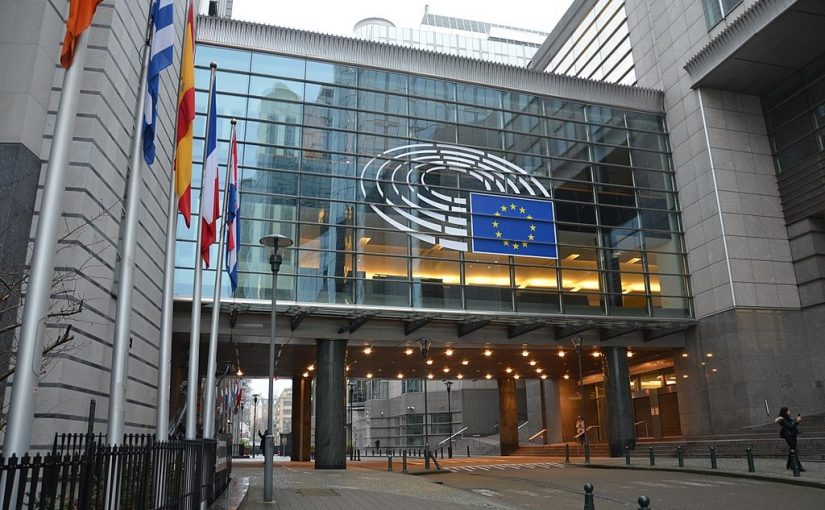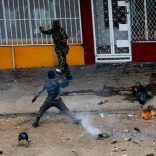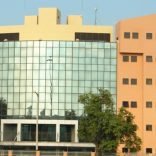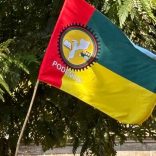Mozambique: Human Rights Association files criminal complaint against Frelimo deputy - AIM report
Mozambique: Brussels insists on a more active EU role against Islamist attacks

Photo: Wikimedia Commons
Members of the European Parliament on Thursday again called for a more active and urgent role for the European Union in the face of the humanitarian crisis in Mozambique, in a debate involving the new head of European foreign policy in Africa, Rita Laranjinha.
Yesterday’s debate on the situation in Cabo Delgado province held jointly in the European Parliament’s Foreign Affairs and Development Committees, began with an intervention from Mozambique by the Bishop of Pemba, Luís Fernando Lisboa, who reported on the serious humanitarian crisis caused by armed attacks in Cabo Delgado province, which have already displaced some 500,000 people.
He pointed out that several districts, not only in Cabo Delgado province, are constantly receiving displaced people – people who “have left everything behind, lost relatives, their houses, have had their daughters kidnapped” and “arrive with nothing, just to save their lives”.
The bishop said that Mozambique’s government, non-governmental organisations (NGOs) and the Catholic Church are “trying to unite in their response,” along with other actors, including Portugal, but warned that the current response “is not enough,” because “the needs are many.
“People keep coming, and we are trying to meet their most basic needs,” he said, warning that “more support is needed to help all those who are fleeing violence in Cabo Delgado.
The new executive director of the European External Action Service (EEAS) for Africa, the Portuguese ambassador, Rita Laranjinha, who took up her duties last Tuesday, also acknowledged to being “shocked and horrified by the reported atrocities”, which demand that “all Mozambique’s partners, including the EU and its Member States”, provide the necessary support.
Noting that the situation in Cabo Delgado is very complex, as it incorporates several factors that require an integrated approach, Rita Laranjinha made a point of stressing that”a response is needed that must pay particular attention to human rights, as “it is not a good strategy or good governance to give priority to a security response over other demands”.
She recalled that high representative Josep Borrell – who heads the EEAS – had made all aid available to Mozambique, and the European diplomatic corps was willing to send security experts to the area, Rita Laranjinha revealed that on Wednesday she had a meeting with the Mozambican Ambassador in Brussels, during which she reiterated the “willingness [of the EU] to provide support at this stage” and that she would follow this matter closely.
The head of the unit for Africa of the Directorate General for Development and International Cooperation of the European Commission, Francesca di Mauro, said that “the EU is already playing an active role” and in constant dialogue with the Mozambican authorities, she assured that “Cabo Delgado is a priority for EU humanitarian actions”, but agreed that “it is urgent to give more attention to this issue at an international level”.
“Urgency” was one of the terms most frequently used by MEPs who spoke next in the debate, namely the Portuguese, the case of the leader of the PSD delegation, Paulo Rangel, who commented that “there is still a lot of talk about medium-term projects”, but what is crucial now is “to scrutinise what the EEAS and the European Commission are doing”, given the imperative “immediate aid on the ground”.
“What we hear from the Bishop of Pemba is that there are NGOs, civil society organisations, but we don’t see the strength of the EU or even countries like Portugal on the ground. I hope that Ambassador Rita Laranjinha will draw the attention of the Portuguese Ministry of Foreign Affairs, which is totally inactive in this matter, she said.
Speaking immediately afterwards, Isabel Santos, MEP from the Socialist Party, began by challenging this criticism of the Portuguese authorities’ actions.
“Without wanting to enter into a discussion here with my colleague Paulo Rangel, a person whom I consider very much and esteem, I want to clarify here that both the MFA and the Ministry of Defence have been in dialogue with the Mozambican authorities and have been willing to help Mozambique. I will not say any more because I do not want to influence the discussion on Mozambique with issues that are internal and have to do with the party political dispute in Portugal. And this issue is too important at this time to mix with other kinds of political issues,” she said.
She also warned of the urgency of supporting Mozambique. “We cannot wait, because the people of Mozambique cannot wait any longer,” she said.
The leader of the PS delegation, Carlos Zorrinho, also took the floor, commenting that one can only “demand more from the EU, and the regional powers and the Mozambican government itself”.
The European People’s Party (EPP) has called for a debate on the same issue to be held in the plenary session last week, which did not happen in the end.
On the other hand, the provinces of Sofala and Manica, in the centre of the country, are the scene of attacks by the self-proclaimed Junta Militar, an armed dissidence of Renamo.
The group rejects the leadership of Renamo president Ossufo Momade, accusing him of betraying the positions of his predecessor Afonso Dhlakama in the negotiations that led to the signing of the Peace and National Reconciliation Agreement on August 6.
🇲🇿 🇪🇺 O Parlamento Europeu pôs outra vez o martirizado povo de Cabo Delgado no centro da sua agenda. E trouxe o Bispo de Pemba à reunião! É preciso actuar já.#ComMoçambique #WithMozambique @psdparleuropeu @EPPGroup @ppdpsd pic.twitter.com/0PuQurqrm8
— Paulo Rangel (@PauloRangel_pt) December 3, 2020












Leave a Reply
Be the First to Comment!
You must be logged in to post a comment.
You must be logged in to post a comment.